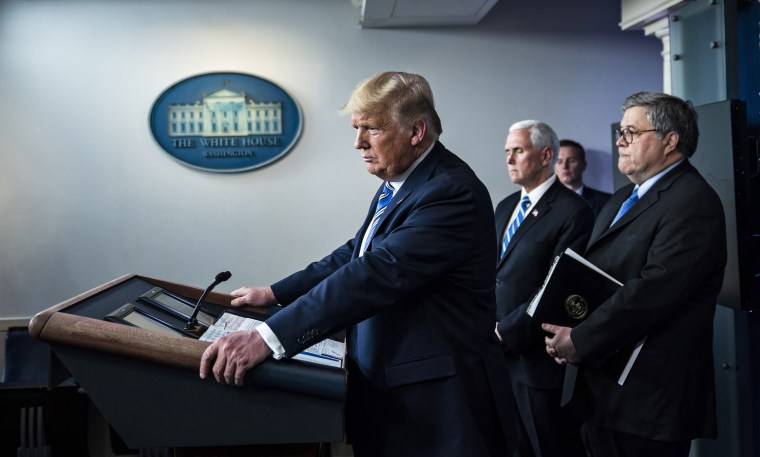A few weeks ago, as the severity of the coronavirus crisis in the United States was just starting to come into focus, Donald Trump held a meeting with executives from leading American pharmaceutical companies. It was frustrating to watch.
As regular readers may recall, the president clearly wanted to hear -- and be able to say -- that a COVID-19 vaccine was right around the corner. "I've heard very quick numbers, that of months," the Republican claimed, pointing to rumors he couldn't identify.
The more Trump was reminded about the lengthy, multi-step process -- development, testing, clinical trials, and deployment -- the more he tried to find someone to tell him what he wanted to hear. "So you're talking over the next few months, you could have a vaccine?" the president asked one CEO, who explained that a possible vaccine could exist in a few months, but that it would still need many months before it could be ready for the public.
Private meetings with the White House Coronavirus Task Force appear to follow a similar trajectory. The Washington Post reported overnight:
One person familiar with task force discussions said Trump has continued to push unproven or experimental drugs as cure-alls -- despite little data so far to support their efficacy and against the advice of his own scientific advisers -- because he "wants this magical moment when this is all over."
We've arrived at the intersection of two unfortunate lines. On the one hand, there's Trump's indifference to science, which he mistakenly believes he can bully into submission, forcing it to bend to his will. On the other, there's his instinctual drive to find a quick fix -- or, alternatively, a fixer -- to make his problems go away, whatever the problem may be.
The related efforts are misguided under any circumstances, but the combination right now is especially toxic. What's more, it's led the president to swing wildly from one mistake (assuming a vaccine will fix the problem) to another (promoting unproven medicinal treatments as a way to address the problem).
Told that a vaccine will take a while and the unproven treatments aren't reliable, Trump now appears eager to retreat from even trying to solve the problem.
A Science magazine editorial recently implored the president to "start treating science and its principles with respect." That'd be a huge step in the right direction, though it appears wholly unlikely.
